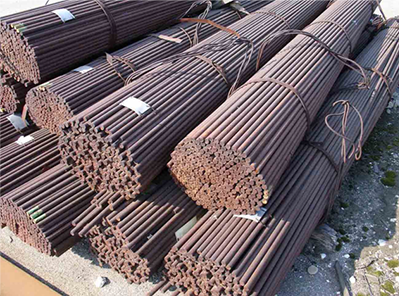Can recycling is one of the most promising sectors in the Brazilian recycling market. With high reuse rates, especially in the case of aluminum cans, this market offers significant opportunities from both an environmental and economic perspective. If you are thinking of starting a business in this area, this guide offers essential information on how to set up a can recycling company, exploring both the aluminum and steel recycling processes.

The Importance of Can Recycling in Brazil
Brazil stands out worldwide when it comes to recycling cans, especially aluminum cans, with rates approaching 100%. This high recycling rate not only contributes to preserving the environment, but also boosts the economy by creating jobs and reducing industrial production costs. Recycling cans is a sustainable practice that reduces the need for extracting raw materials, reduces energy consumption and prevents greenhouse gas emissions.
Aluminum Can Recycling: Process and Opportunities
Aluminum cans began to gain popularity in the North American market in 1963, but it wasn't until 1968 that can recycling programs began to take shape in the United States. Since then, the process has evolved significantly, becoming a common practice in several countries, including Brazil.
The aluminum can recycling process is quite efficient. After collection, the empty cans are crushed by special presses, which issue a ticket with the value corresponding to the quantity delivered. This material is then baled by scrap dealers, waste picker cooperatives, supermarkets and schools, and later sent to foundries. In the furnaces of these industries, the cans are melted and transformed into aluminum ingots, which are sold to aluminum sheet manufacturers. These sheets are used to produce new cans, which can return to the shelves in about a month.
Recycling aluminum cans is particularly attractive because the material can be recycled an infinite number of times without losing its original properties. This means that the demand for recycled aluminum is constant, creating a robust and lucrative market for entrepreneurs.
Steel Cans: Recycling and Industrial Applications
Although aluminum cans are the most widely recycled, steel cans also play an important role in metal recycling. Made from metal sheets known as tinplate, steel cans are composed of iron and a small amount of tin or chromium, which makes them resistant to oxidation and suitable for preserving food for long periods.
The steel can recycling process begins with the separation of the cans from the trash, followed by a cleaning process to remove contaminants. The cans are then pressed into bales for easy transportation to smelting plants. In these plants, the scrap metal is melted in electric or oxygen furnaces at temperatures of up to 1550 degrees Celsius. The resulting material is molded into metal billets and plates, which are cut into steel sheets for use in various industrial sectors.
Recycled steel can be used in a wide variety of products, from automobiles to household appliances to new cans. Like aluminum, steel can be recycled repeatedly without significant loss of quality, making steel can recycling a sustainable and economically viable practice.
Considerations for Setting Up a Can Recycling Business
If you are interested in starting a can recycling business, there are several factors to consider before starting the business. First, you will need a suitable space to collect and store the cans. This space must be safe, well-ventilated, and easily accessible for transport trucks. Additionally, it is essential to have pressing equipment and machines to bale the cans.
Another important consideration is the market for the recycled material. Identify foundries and manufacturers of aluminum sheets or steel sheets that may be willing to buy the recycled material. Developing partnerships with waste picker cooperatives, supermarkets, and schools can also be an effective strategy to ensure a steady flow of raw materials.
Additionally, it is essential to be aware of the environmental and safety regulations that apply to the operation of a recycling business. Compliance with these regulations is not only essential to avoid fines and penalties, but also demonstrates your company’s commitment to sustainability and social responsibility.

Sustainability and Environmental Impact
Can recycling has an extremely positive environmental impact. Each ton of recycled aluminum prevents the extraction of around 5 tons of bauxite, the mineral from which aluminum is extracted. In addition, aluminum recycling consumes 95% less energy than producing new aluminum from bauxite. These factors make can recycling one of the most efficient and sustainable practices in waste management.
In the case of steel, recycling also offers significant benefits. Producing steel from recycled scrap uses less energy and reduces carbon dioxide emissions compared to producing steel from iron ore. In addition, recycling steel helps conserve natural resources and reduces the amount of solid waste sent to landfills.
The Importance of Environmental Awareness and Education
For can recycling to be effective, widespread awareness of the importance of this practice is essential. This includes educating the public about proper waste separation, the importance of recycling, and the environmental benefits of can recycling. Educational campaigns in schools, communities, and businesses can play a vital role in this process.
Recycling companies can also contribute to environmental awareness by promoting recycling programs in partnership with local organizations. These programs not only increase the amount of recycled material, but also strengthen the company's image as an entity committed to sustainability and the environment.
Future Perspectives for Can Recycling
Can recycling will continue to be an important sector in the circular economy, especially as demand for sustainable practices increases. Technological innovation and the development of new recycling methods should make the process even more efficient and accessible, expanding opportunities for entrepreneurs.
Furthermore, government support and public policies that favor recycling can stimulate the growth of the sector by providing incentives for companies that adopt sustainable practices. Therefore, investing in a can recycling company is not only a smart choice from an economic perspective, but also a significant contribution to protecting the environment and building a more sustainable future.
In short, setting up a can recycling business requires careful planning, investment in infrastructure and equipment, and a strong network of partners. However, the environmental and economic benefits of recycling aluminum and steel cans make this venture a promising opportunity for those looking to invest in a sustainable and positive impact business.
Check out other interesting facts about recycling clicking here.
Learn how to make art by recycling, Click here.
Summary




I would like to know where to buy the machinery needed to set up an aluminum recycling factory and the prices of this machinery.
See if you can find it in our search area: http://setorreciclagem.com.br/reciclagem-maquinas-equipamentos/
Search for recycling equipment or aluminum recycling machines.
A hug!
I would like to know how taxation is carried out on the recycling of one product into another with the same characteristics, as in the example above.
Get information from an expert, Marina. Check out the partnership we have with a professional training company. It is a way to get valuable and assertive information before making investments in equipment and location: http://setorreciclagem.com.br/cursos/curso-negocios-no-setor-de-residuos-solidos